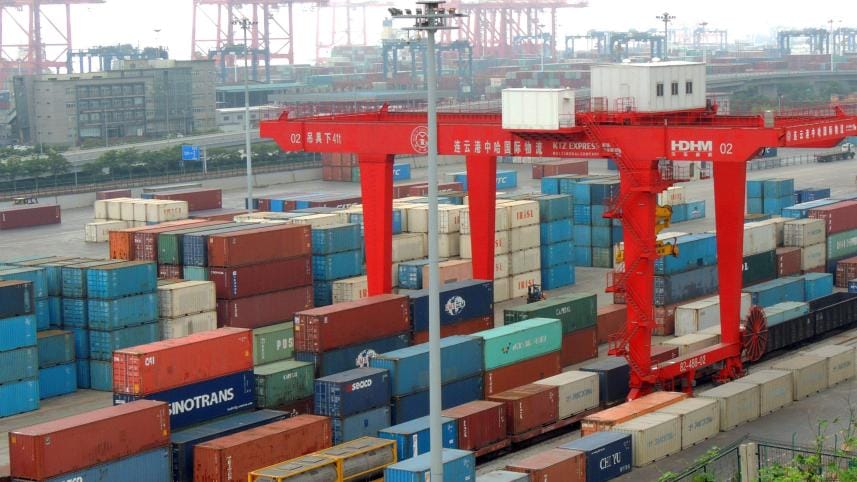Chinese exports top forecasts but imports slow sharply

China's exports jumped in August but imports fell well short of expectations, data showed Tuesday, as the country's leaders struggle to boost consumption in the world's second-largest economy.
Overseas shipments expanded 8.7 percent on-year last month, according to China's General Administration of Customs, picking up speed from 7.0 growth in July.
The reading was also much better than the 6.6 percent forecast in a Bloomberg survey of analysts.
The figures will provide a little encouragement to leaders, who have this year sought to counteract an array of headwinds that have dragged on growth, which has led to sluggish spending, with consumers reluctant to make large purchases.
However, imports in August grew just 0.5 percent, a massive drop from the 7.2 percent enjoyed the month before and much lower than the 2.5 percent estimated in the Bloomberg survey.
The data comes a day after news that consumer inflation picked up last month to a six-month high but still came up short of expectations, leaving many worried the economy could slip back into deflation.
"China's economy continues to show diverging trends with weak domestic demand and strong export competitiveness, both reflecting the domestic deflationary pressure," Zhang Zhiwei, President and Chief Economist at Pinpoint Asset Management, said in a note.
"The question is how long exports can stay strong given the weakening US economy and the rising trade tension," Zhang added.
China has charted an uneven economic trajectory since the abrupt cancelling of strict counter-pandemic measures in late 2022.
Its rapid economic development in recent decades has been propelled in part by booming exports, supported by a colossal factory sector.
However, a closely watched report last week showed manufacturing activity shrunk last month at its fastest pace since February.
Leaders in Beijing are targeting five percent expansion in 2024 but that is considered ambitious by many economists.
Second-quarter growth stood at 4.7 percent, missing expectations.



 For all latest news, follow The Daily Star's Google News channel.
For all latest news, follow The Daily Star's Google News channel.
Comments